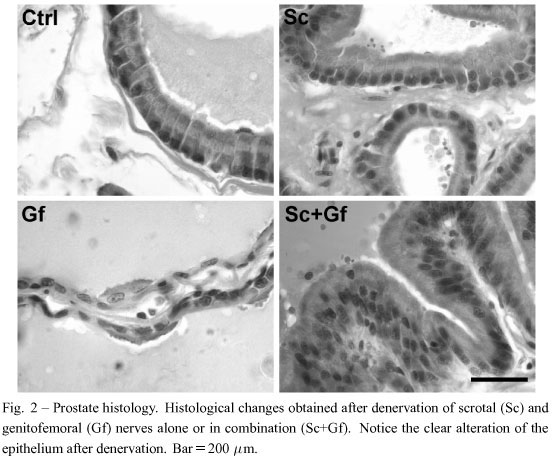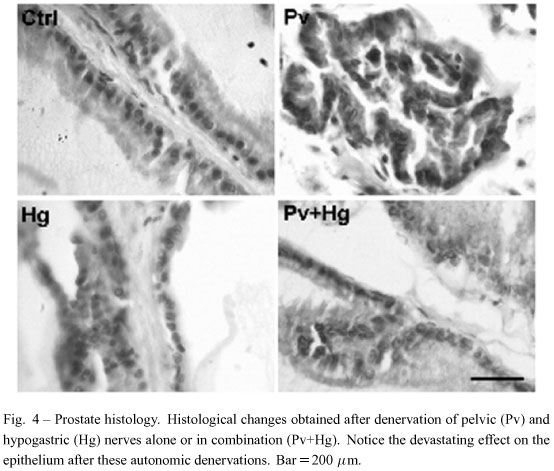It is known that hormones influence significantly the prostate tissue. However, we reported that mating induces an increase in androgen receptors, revealing a neural influence on the gland. These data suggested that somatic afferents (scrotal and genitofemoral nerves) and autonomic efferents (pelvic and hypogastric nerves) could regulate the structure of the prostate. Here we assessed the role of these nerves in maintaining the histology of the gland. Hence, afferent or efferent nerves of male rats were transected. Then, the ventral and dorsolateral regions of the prostate were processed for histology. Results showed that afferent transection affects prostate histology. The alveoli area decreased and increased in the ventral and dorsolateral prostate, respectively. The epithelial cell height increased in both regions. Efferent denervation produced dramatic changes in the prostate gland. The tissue lost its configuration, and the epithelium became scattered and almost vanished. Thus, afferent nerves are responsible for spinal processes pertaining to the trophic control of the prostate, activating its autonomic innervation. Hence, our data imply that innervation seems to be synergic with hormones for the healthy maintenance of the prostate. Thus, it is suggested that some prostate pathologies could be due to the failure of the autonomic neural pathways regulating the gland.
pelvic nerve; hypogastric nerve; genitofemoral nerve; scrotal nerve





